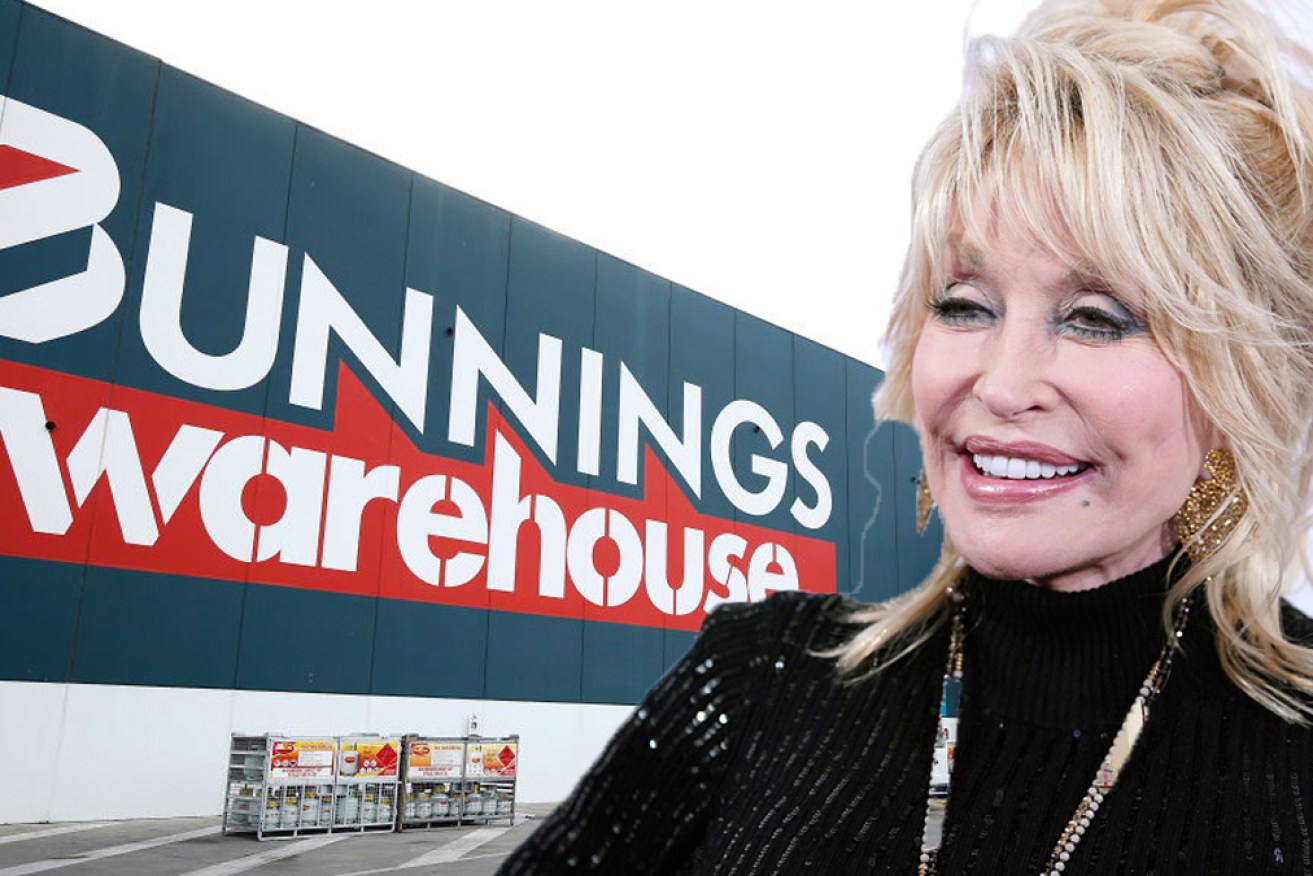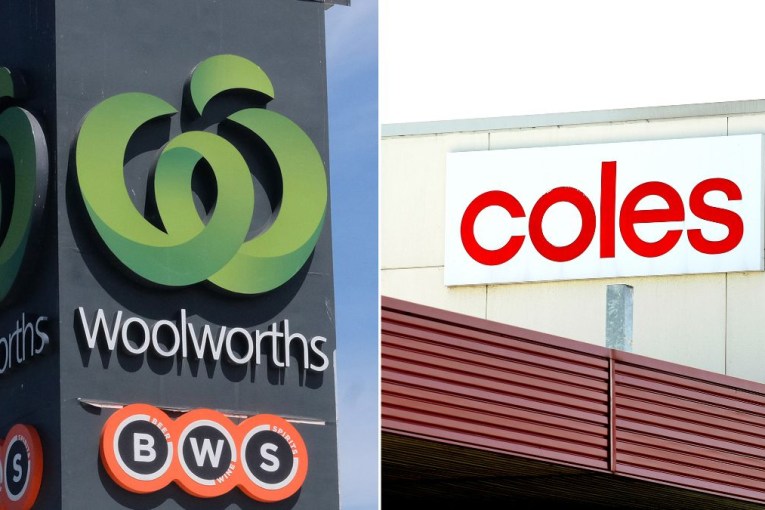Bunnings vaccine hubs? Why brands are pitching in to help fight COVID-19


Bunnings and Dolly Parton are being used to boost public confidence in the vaccine. Photo: Getty/TND
From vaccines to car park COVID tests, big brands and celebrities have been keen to pitch in to help governments around the world fight the coronavirus pandemic.
On Thursday, The Guardian reported that Bunnings Warehouse could become the site of mass coronavirus vaccination hubs to help boost community trust and fast-track Australia’s vaccine rollout.
The popular hardware store chain and sausage sizzle favourite quickly hosed down the report, confirming to The New Daily that no proposal had been made to government regarding the possibility of Bunnings being used to supercharge the sluggish vaccine rollout.
“We’ve previously supported the government and the community by hosting COVID-19 testing in some of our store car parks and we’re always open to discussing further support directly with the government,” chief operating officer Debbie Poole said.
So while Australians are unlikely to be snagging a COVID jab alongside a sausage in bread any time soon, the story highlights the role that consumer brands have played throughout the pandemic.
Other major companies, including the National Australia Bank, one of the nation’s biggest employers with about 35,000 staff, have also offered to help.
Deakin University marketing expert Michael Callaghan said that while private sector companies have provided some “terrific ideas”, the Australian government has often failed to capitalise on them.
“It’s just disappointing that when it comes to creative solutions to problems posed by the pandemic, these creative solutions are always coming from somewhere other than government,” Dr Callaghan told TND.
“There seems to be some resistance to fully thinking out issues that might be raised by people outside of that little circle of influence that we see in the government.”
However, the fact that businesses are “consciously thinking of ways in which they can be good corporate citizens and putting their hands up to help” is a positive, Dr Callaghan said.
Big brands that aid in pandemic efforts also benefit from publicity that can generate good will from customers, he said.
“From a corporation’s point of view, anything to do with the pandemic gets eyeballs … and this is exactly where organisations want to associate themselves,” Dr Callaghan explained.
“What we’re seeing is pandemic promotion, and the reason why brands want to do it is because it gets the attention of customers and associates their name with that good corporate citizenship of seeking to facilitate the end of the crisis, or in some way making the crisis easier.”
Trust and the pandemic
Trusted brands and celebrities can play an important role in building community support for coronavirus measures, including vaccinations.
From Lady Gaga donning a bejewelled face mask in the early days of the pandemic, to Dolly Parton rolling up her sleeve for a Moderna vaccine she helped fund, there has been no shortage of famous faces promoting COVID-19 health messages to the community.

Dolly Parton got “a dose of her own medicine” with a COVID jab she helped fund. Photo: Instagram
A link between a beloved brand or famous face “reduces the barriers of resistance in terms of attitude development for consumers”, Dr Callaghan explained
Indeed, the public actively expects government and business to team up to fight the scourge of COVID-19, research released by marketing agency Edelman last year found.
“Neither business nor government is trusted to go it alone,” chief executive Richard Edelman explained.
“There is twice as much trust in a combined business/government effort than in government combatting the virus alone (45 per cent versus 20 per cent).
“Business alone is one-quarter as trusted as government alone in fighting the virus.”
Mr Edelman noted that the “speed to action” by companies in coronavirus-affected areas had in many cases outstripped “government requests or public expectation”, citing the United States’ National Basketball Association as a leading example.
The NBA led the way for sports leagues with coronavirus safety measures, and spent hundreds of millions on community relief.
During November’s presidential election, the league converted its arenas into voting centres.
But there can be a cost for backing an initiative that falls flat.
Celebrities and brands need to be “careful about what they endorse … because if they associate with products that are not deemed to be successful it will tarnish their reputation as well”, Dr Callaghan said.
This is a current “problem” confronting the Australian government, he said.
“There are a lot of celebrities out there that are actively disassociated from the government in terms of promoting the vaccine rollout,” Dr Callaghan said.
“The government has tended to create that tension with groups, organisations, corporations that maybe could help facilitate the program, but don’t want to be associated with the way in which it is being rolled out.”
Brands picking up the slack for governments isn’t new
The coronavirus pandemic isn’t the first time brands have noticed an opportunity to snag positive press by helping out where governments are failing.

Domino’s ‘paving for pizza’ blitz was described by some as ‘dystopian’. Photo: Domino’s
In 2018, multinational pizza franchise Domino’s made headlines with a campaign that saw the firm pay to pave over potholes in roads across the United States.
Dubbed ‘paving for pizza’, the campaign highlighted ‘how bad roads can ruin good pizza’ and featured images of Domino’s-branded trucks at work smoothing out wonky roads in 50 US states.
While the blitz garnered much positive attention for Domino’s, some wondered whether it revealed ‘dystopian‘ truths about the state of government infrastructure in America.








